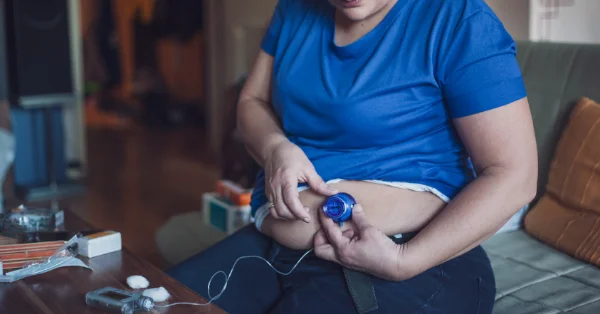Do you snack a lot? Do you find it hard to control your snacking habits? According to studies
from Food Insight, 33% of people will snack at some point during the day and 24% will
snack multiple times throughout the day.
Over snacking is a common issue nowadays that can be difficult to overcome. With the right
strategies, however, snacking can be avoided and a healthier lifestyle can flourish.
What is snacking? How is it harmful?
Snacking refers to the act of eating or drinking food in between meals. Inherently, snacking is
not a negative behaviour as it is important to nourish our bodies and satisfy our hunger
throughout the day. Snacking can become an issue, however, when it becomes addictive or is
done mindlessly.
Just like smoking or drinking, snacking can become an addiction. Snack foods often lack
nutrition and are filled with addictive sugars and fats. The addictive, but unhealthy,
ingredients in snack foods, such as cookies, chips, or candy, stimulate our taste buds and
leave us craving more.
Mindless snacking is another form of over snacking. Mindless snacking is when there is a
lack of conscious awareness while snacking. This can happen due to a number of reasons,
such as snacking as a way to fight boredom, snacking in response to stress or other emotions,
or even being distracted while snacking. For instance, eating while watching TV distracts the
mind from the amount of food consumed and leads to mindless snacking.
Ways To Stop Snacking
Snacking in addictive or mindless ways can ultimately lead to poor nutrition and weight gain.
Here are five ways to reduce or avoid snacking.
Plan Meals
Snacking can often be a result of poor meal planning and feeling as if there isn’t food readily
available for you. This habit can be avoided by prepping your food in advance, spreading out
your mealtimes evenly throughout the day, and predetermining how much you’ll be eating.
By prepping big and healthy meals, you can ensure you get the proper nutrition you need at
every meal and feel satisfied at the end of it. That way you are less likely to crave snack
foods and over snack due to hunger. Spreading out mealtimes evenly also allows your body to
adopt an eating schedule and stop feeling hungry in between meals.
If possible, it is also a good idea to measure how much you’re eating in an app or notebook,
to be aware of all you put in your body and avoid mindless snacking. Keep in mind that
measuring food or calories obsessively, however, can lead to disordered eating. Only do so if
you are comfortable with it and stop if you begin to feel pressured by the practice.
Stay Hydrated
The urge to snack can also be rooted in thirst. When you’re dehydrated, you may not
understand what your body needs and try to snack on something juicy or flavourful.
Oftentimes, drinking a glass of water and waiting 15 minutes can subdue the urge to snack.
Ask Yourself Questions
Snacking can sometimes be a response to boredom, stress, distraction, or other emotions and
feelings. Having a list of questions to ask yourself every time you reach for a snack may give
you a moment of reflection before you give into temptation. Here is an example list:
- “Am I even hungry?”
- “Am I just bored?”
- “Am I going to be distracted while eating?”
- “Am I stressed or upset?”
- “Am I following my meal plan or routine?”
Make Snacking Less Accessible
If you can’t control yourself when it comes to snacking, it is a good idea to make snack foods
less accessible for yourself. This can be done by not buying or keeping snack foods at home
in the first place. Before grocery shopping, make a list of essential items and stick to it to
avoid impulsively buying snacks. This way, when you’re hungry at home, you’re forced to
find ways around snacking.
You can also restrict your snacking by keeping them out of reach or with someone who can
help you control your habits. Studies show that keeping snacks in containers, high shelves, or
deep in the pantry can make it easier for you to avoid hastily grabbing a snack. You could
also keep your snacks with a parent or roommate that can help you control yourself when you
crave them.
Snack Smart
If the above suggestions don’t work for you or subdue your snacking urge, it is key to not
deprive yourself. It is entirely normal to feel hungry between meals even if you do all the
right things.
In these situations, it is good to indulge in healthy snacks or simply eat at a moderate pace
and amount. You can find an alternative for your craving such as switching out potato chips
with kale chips. This way you can indulge but still receive healthy nutrients. Otherwise you
can satisfy your craving but eat at a slow pace and have little amounts. Oftentimes when we
snack, we eat too fast and too much, and don’t notice we are overeating until we begin to feel
full from digestion. It is important to remain patient and self-aware while snacking.
The Bottom Line
To conclude, addictive or mindless snacking is a predominant issue nowadays. As the food
industry becomes more globalized and commercialized, snack foods are becoming more
accessible than healthy foods. With proper planning, hydration, reflection, and constraint,
however, over snacking can be dealt with.
It is most important to remember that the urge to snack is normal and snacking is not a
negative behaviour, as long as it is done within limits. Never deny your body of food or drink
if it is feeling like it needs fuel or hydration, but keep your health and wellbeing in mind
while doing so.
References
- https://foodinsight.org/snacking-on-the-rise-2019-food-health-survey-results/#:~:text=According%20to%20our%20research%2C%20almost,snacking%20multiple%20times%20per%20day.
- https://www.thefreedictionary.com/snacking
- https://www.thequint.com/fit/why-snacking-junk-food-addictive#read-more
- https://blog.vantagefit.io/what-is-mindless-eating/
- https://loseitblog.com/2020/04/23/5-questions-to-ask-ourselves-to-avoid-mindless-snacking/#:~:text=Mindless%20eating%20can%20be%20defined,us%20off%20our%20nutrition%20goals.
- https://tomorrows.kitchen/tips-tricks/quit-snacking-10-tips-make-easier
Naomi Monower
Research Intern, The Diabetes App









